
Thirty years after the Srebrenica genocide. The victims’ legal odyssey
Thirty years after the Srebrenica genocide. The victims’ legal odyssey Written for the componente: Armed conflicts Thirty years after
Written for the component
Armed conflicts: Gaza
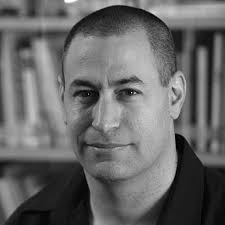
Background
On 20 May 2024, the Prosecutor of the International Criminal Court (ICC) published a public statement about his application for arrest warrants in the Situation of the State of Palestine against Israeli Prime Minister Benjamin Netanyahu and Minister of Defence Yoav Galant, and also against Hamas leaders Yahya Sinwar, Mohammed Diab Ibrahim Al-Masri (Deif), and Ismail Haniyeh. The request for arrest warrants against Netanyahu and Galant was based mainly on the crime of starvation under the Rome Statute and included references to other relevant war crimes and crimes against humanity. The request for arrest warrants against Hamas leaders included crimes against humanity and war crimes in the context of the non-international armed conflict.
The request for arrest warrants was supported by a public report of a panel of international law experts, who analyzed the legal situation and suggested, inter alia, a complex classification of conflict. According to the experts’ analysis, the Hamas operations against Israel are part of a non-international armed conflict (NIAC), and while Israel’s operations against Hamas are part of that NIAC, other operations in the Gaza Strip are part of an international armed conflict (IAC) between Israel and Palestine (see paragraph 11–15 in the report). Thus, concluding that these two armed conflicts apply side by side.
In mid-August, with the permission of the Pre-Trial Chamber, around 60 states, experts, and organizations submitted amicus briefs to the Court. While the majority of the amicus briefs discussed the jurisdiction of the Court, others addressed more specific issues, including the claim that the Prosecutor rushed things and bypassed the notification procedures in accordance with Article 18 of the Rome Statute, and the problematic classification of conflict.
On 20 September 2024, the Israeli Government submitted an official challenge to the ICC’s jurisdiction with regard to the application for arrest warrants for Netanyahu and Galant.
In the meantime, Israel had operated and killed all three leaders of Hamas (Yahya Sinwar, Mohammed Deif, and Ismail Haniyeh) in the course of its conflict with Hamas.
Recently, in a significant development, on 21 November 2024, the Pre-Trial Chamber of the ICC rejected the Israeli submissions and accepted the request of the Office of the Prosecutor (OTP) and issued arrest warrants for Netanyahu and Galant as well as against Deif (despite the Israeli claim that he is dead).
In this blog post, I will provide an observation on the implications of external political pressure on the legal decisions made by the Prosecutor in high-profile cases and demonstrate how the Gaza conflict underscores the delicate balancing act between law and political pressures. I will suggest that with the entire world watching and powerful political influences at play, the Prosecutor’s decisions raise key questions about the role of the ICC in situations of intense international scrutiny. This post addresses these questions through three lenses: Purpose, Impact, and Process.
The Prosecutor and the ICC are not insulated from the world’s political pressures, especially in cases of extreme public attention like the Gaza conflict. High-profile conflicts inevitably bring an intensified expectation that the ICC will respond quickly, decisively, and publicly to allegations of atrocities. Without a rapid and visible response, the ICC risks questions of legitimacy—questions often phrased bluntly as, “What are you good for?”
If global public opinion widely asserts, whether with or without merit, that atrocities such as genocide, war crimes, or crimes against humanity are occurring in Gaza, it creates a public expectation that the ICC will step in and act decisively. For the Prosecutor, who operates under the notion that the ICC has jurisdiction over these alleged crimes (following a previous decision by the Court), ignoring or delaying a response to Gaza could allegedly jeopardize the Court’s relevance and credibility. While jurisdiction itself has been a subject of intense debate, this post acknowledges that the Court’s previous ruling on jurisdiction stands as the basis for recent prosecutorial decisions.
This context suggests that political and public pressures have strongly influenced the Prosecutor’s actions regarding Gaza, where not responding quickly might well provoke widespread skepticism about the ICC’s utility and purpose.
One of the central questions surrounding the recent prosecutorial action is why the Office of the Prosecutor (OTP) issued arrest warrants for figures whose arrest seems highly unlikely. For instance, key Israeli figures, such as Prime Minister Netanyahu and Defense Minister Galant, are unlikely to enter the territory of an ICC member state without assurances that they would not be detained and extradited. Similarly, the three Hamas leaders targeted by the ICC were well aware of their international standing and have avoided ICC member states to reduce arrest risk. If we accept the Israeli claim that Deif was killed, he is also unlikely to visit any member state in the near future…
Why, then, the urgency to issue warrants that, from a practical standpoint, may never be enforced?
The answer may lie in what this post describes as the “What are you good for?” perspective. Issuing warrants, even if they go unenforced, serves (mainly, or solely) a symbolic purpose: it signals to the international community that the ICC is actively and rapidly addressing alleged crimes in Gaza. In high-profile cases where public scrutiny is unrelenting, the ICC may see symbolic actions as necessary to affirm its commitment to justice—even if the actual legal outcomes remain uncertain.
It seems then that the arrest warrants against Netanyahu and Gallant serve as de facto “travel ban” orders. A symbolic act that is neither under the authority nor purpose of the ICC.
Similar symbolic actions were taken by the Prosecutor in the context of the Russia-Ukraine conflict. It is not only unlikely that President Putin will be arrested—he has already taunted the Court by visiting a member state, Mongolia, in September 2024.
The Prosecutor must also consider the impact of any action taken. Issuing warrants for both Israeli and Hamas leaders could be seen as an attempt to balance the scales of justice, recognizing harms to both Israeli and Palestinian victims. However, this approach has its own implications and potential pitfalls.
For example, while placing Israeli and Hamas leaders side by side may seem even-handed, it may shift public discourse primarily toward Israeli leaders. This shift occurs, in part, because it is widely acknowledged that Hamas leaders are likely involved in war crimes and crimes against humanity. However, by grouping Israeli leaders with these individuals, the ICC risks reframing the focus in a way that may overshadow crimes committed by Hamas and further polarize the discourse.
Moreover, now that the Hamas leaders are no longer alive, that “balance” has been Shattered, which will now require both the Prosecutor and the Court to rethink their next move, as they are placed between a rock and a hard place. On the one hand, issuing arrest warrants only against Israeli leaders without any arrest warrants issued against Hamas leaders would place the Court, again, under a lot of criticism. Refraining from doing so would make the Court and the Prosecutor seem weak and politicized (or rather expose that). One could only wonder if the decision to proceed with the arrest warrant against Deif, despite the claims that he is dead, is not part of these considerations. Moreover, the arrest warrant against Deif was probably the only way for the Prosecutor (and later the PTC) to show that the atrocities committed by Hamas on October 7th and the continued holding of the hostages, are not being ignored by the ICC.
The impact of the ICC’s actions, therefore, extends beyond mere legal enforcement; it influences how both sides of the conflict are perceived and potentially impacts the victims of both sides. The stakes of these decisions are high, as they could inadvertently bias international narratives and shape public opinion in complex and unintended ways.
The Prosecutor’s approach has also involved an accelerated process, which has raised procedural questions and challenges, particularly in relation to Article 18 of the Rome Statute. Article 18 requires the ICC to notify states, allowing them the opportunity to investigate alleged crimes domestically before the ICC intervenes. This procedural step is fundamental to the principle of complementarity, where the ICC only steps in if national courts are unwilling or unable to prosecute.
However, the recent operations in Gaza, specifically those involving recent escalations such as the claim of starvation, were not within the scope of the OTP’s 2021 notification. The rapid response from the OTP suggests an urgency to include new incidents in Gaza without fully engaging with Article 18 notifications (see for example here). This raises questions: Is the OTP maintaining a consistent standard in applying Article 18? Could the principle of complementarity be compromised in the rush to act?
A further complication arises from the complex classification of the Gaza conflict. The OTP’s decision to categorize the conflict as involving both international and non-international elements allows for the prosecution of certain crimes, such as starvation, that would otherwise be inapplicable in NIACnon-international armed conflicts. However, this dual classification—placing Israel under both international and non-international armed conflict and viewing Hamas’s conflict with Israel as purely non-international—adds legal complexity that may challenge the Court’s consistency. In an amicus brief submitted by ALMA—Association for the Promotion of International Humanitarian Law, we addressed the practical impracticality of such dual classification with regard to the same area, actors, and actions, requesting the Court to avoid using such unnecessarily complicated classification (without determining which option should prevail, of international or non-international armed conflict).
Taking into account the impacts of public expectation, procedural shortcuts, and attempts to balance justice across parties, it is clear that the ICC has entered dangerous waters with the issuance of arrest warrants in the Gaza situation. The need to preserve international credibility often clashes with the complexities of managing political pressure. What remains uncertain is whether the ICC will continue to act swiftly under pressure in future cases, or whether it will scale back its actions to avoid political entanglements. In the current climate, the Court’s legitimacy will likely continue to hinge on how well it navigates these competing challenges.
This brief analysis underscores the dilemmas the ICC faces as it becomes increasingly caught between political imperatives and its statutory obligations. As international attention intensifies, the role of the ICC will increasingly be tested—both as a legal institution and as a global political actor.
Preliminary Comment: This post does not address any personal allegations against Prosecutor Karim Khan. Rather, it seeks to examine the pressures and influences shaping his office’s recent actions in light of international law and the unique complexities surrounding the ICC’s role in high-profile conflicts.
Dr. Ido Rosenzweig is the Director of Cyber, Belligerencies and Terrorism Research at the Minerva Center for the Study of Law under Extreme Conditions. He is an international lawyer with expertise in international humanitarian law (laws of armed conflict) and international human rights law. Prior to his work at the Minerva Center, Ido worked as a researcher at the Israel Democracy Institute (in the Terrorism and Democracy Research Division) (2009-2014). He is the co-founder and chairman of ALMA – Association for the Promotion of International Humanitarian Law since 2010.
The opinions expressed here do not represent the stance of the CIV or the entities to which the authors are or were affiliated.

Thirty years after the Srebrenica genocide. The victims’ legal odyssey Written for the componente: Armed conflicts Thirty years after
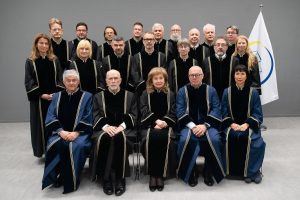
The necessity of public and governmental support for transnational justice: the case of the Kosovo Specialist Chambers Written for the
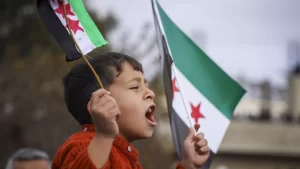
Syria’s Transitional Government and International Law Written for the component: Peace Building and transitions Syria’s Transitional Government and International
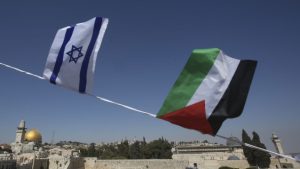
An Unlawful Occupation of a Devastated Territory Written for the component:Armed Conflicts: Gaza “The dialogue of the occupying power

From Chaos to Clarity: How Conflict Classification Enhances Peacebuilding Written for the component: Peace Building and Transitions Introduction In today’s

Last Three Years Without serious consequence: Overview of the nature and Challenges of Russia’s War Against Ukraine under The International

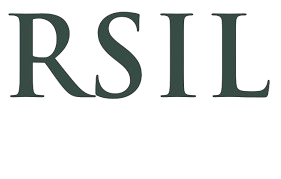
To receive more information about our newsletter, please leave us your email address.